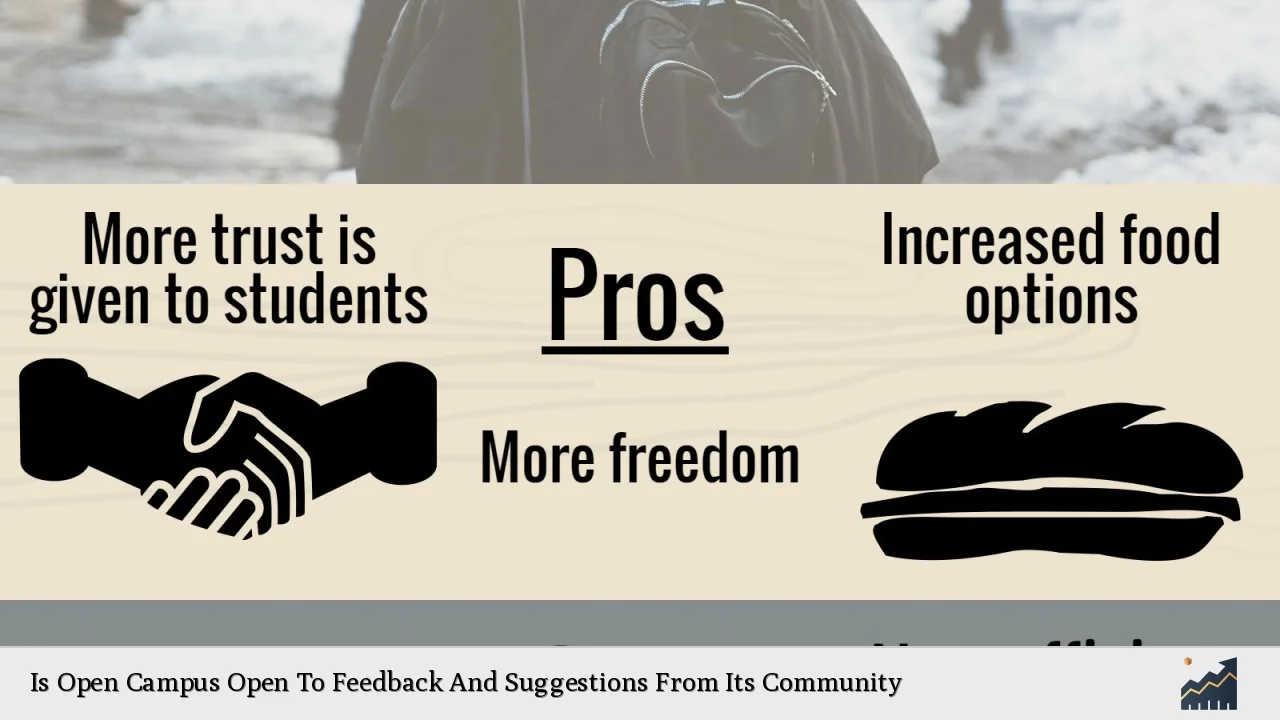Open Campus is a decentralized educational protocol that emphasizes community engagement and the involvement of its users in decision-making processes. Its governance structure is designed to incorporate feedback and suggestions from the community, particularly through the Open Campus DAO (Decentralized Autonomous Organization). This approach not only fosters a sense of ownership among users but also aligns the platform’s development with the needs and preferences of its community members.
| Key Concept | Description/Impact |
|---|---|
| Decentralized Governance | The Open Campus DAO allows EDU token holders to propose and vote on changes, ensuring that community feedback directly influences platform development. |
| Community Proposals | Members can submit proposals for new features or changes, which are then subject to a voting process, enhancing community involvement. |
| Feedback Mechanisms | Open Campus employs various channels, such as Discord and forums, for community members to share their suggestions and feedback. |
| Transparency in Decision-Making | The governance process is transparent, with all proposals and voting outcomes made publicly available, fostering trust within the community. |
| Incentives for Participation | EDU token holders are incentivized to engage in governance through rewards for participation in voting and proposal submissions. |
Market Analysis and Trends
The landscape of decentralized education is rapidly evolving, with platforms like Open Campus leading the charge. The integration of blockchain technology into education not only enhances transparency but also empowers content creators and learners alike. Recent trends indicate a growing acceptance of decentralized models across various sectors, including education.
Key Trends Influencing Open Campus
- Decentralization: The shift towards decentralized platforms is gaining momentum as users seek more control over their educational experiences.
- Tokenization of Educational Content: The use of Publisher NFTs allows educators to monetize their content while maintaining ownership rights.
- Community-Centric Models: Platforms that prioritize user feedback and community engagement are more likely to succeed in attracting and retaining users.
- Integration with Other Technologies: Collaborations with AI and other tech providers enhance the learning experience by offering personalized educational tools.
Implementation Strategies
To effectively harness community feedback, Open Campus has implemented several strategies:
- Proposal Submission Process: Community members can draft proposals outlining their suggestions for improvements or new features. These proposals undergo a structured review process before being put to a vote.
- Regular Feedback Cycles: Open Campus conducts periodic surveys and feedback sessions to gauge user satisfaction and collect suggestions for enhancements.
- Educational Partnerships: Collaborating with educational institutions helps Open Campus align its offerings with academic standards and user expectations.
- Utilization of Social Media: Engaging with users through platforms like Discord allows for real-time feedback and fosters a sense of community.
Risk Considerations
While the decentralized model presents numerous advantages, it also comes with inherent risks:
- Governance Challenges: Ensuring that all voices are heard in the governance process can be difficult, especially as the community grows.
- Quality Control: As content creators publish diverse materials, maintaining quality standards becomes crucial. The peer-review system is essential but may face challenges in scalability.
- Market Volatility: The value of EDU tokens can fluctuate significantly, impacting the financial incentives for content creators and users alike.
Regulatory Aspects
Open Campus operates within a complex regulatory environment. Key considerations include:
- Compliance with Educational Regulations: As an educational platform, Open Campus must adhere to various regulations governing online education.
- Data Privacy Laws: Ensuring compliance with data protection regulations is vital as user data is collected and utilized within the platform.
- Token Regulation: The SEC’s evolving stance on cryptocurrencies may impact how EDU tokens are classified and used within the platform.
Future Outlook
The future of Open Campus appears promising as it continues to innovate within the educational space. The emphasis on community feedback positions it well to adapt to changing user needs. Additionally, as blockchain technology matures, Open Campus could expand its offerings further by integrating advanced technologies such as AI-driven personalized learning tools.
Potential Developments
- Expansion of Course Offerings: By onboarding more educators and institutions, Open Campus can diversify its content library.
- Enhanced User Engagement Features: Implementing gamification elements could increase participation in governance and content creation.
- Global Reach: Expanding into emerging markets where access to quality education is limited could significantly impact global education equity.
Frequently Asked Questions About Is Open Campus Open To Feedback And Suggestions From Its Community
- How does the Open Campus DAO work?
The DAO allows EDU token holders to propose changes and vote on platform developments, ensuring community involvement in decision-making. - What types of proposals can be submitted?
Community members can submit proposals related to new features, improvements, or changes in governance processes. - How is feedback collected from users?
Feedback is gathered through surveys, forums, and social media channels like Discord. - What incentives are there for participating in governance?
EDU token holders receive rewards for active participation in voting and proposal submissions. - Are there any risks associated with decentralized governance?
Yes, challenges include ensuring all voices are heard and maintaining quality control over published content. - How does Open Campus ensure compliance with regulations?
The platform adheres to educational regulations, data privacy laws, and monitors SEC guidelines regarding cryptocurrency use. - What future developments can we expect from Open Campus?
The platform aims to expand course offerings, enhance user engagement features, and potentially reach global markets. - Can anyone participate in the governance process?
Yes, all EDU token holders are eligible to submit proposals and vote on decisions affecting the platform.
This comprehensive overview highlights how Open Campus actively engages its community through feedback mechanisms while navigating the complexities of decentralized governance. By prioritizing user input and adapting to market trends, it positions itself as a leader in the evolving landscape of education technology.

